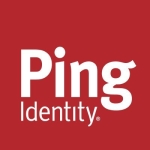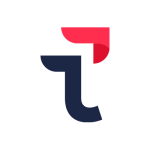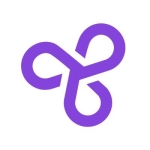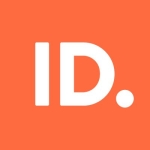What is our primary use case?
It's mostly used for customer-facing applications (Customer Identity Management). API management and self-service flows are the most utilized capabilities. It offers a lot of customization in terms of branding, email notifications, and creating a good end-user experience.
For remote access, we have solutions proposed, like Okta Identity Engine (OIE). It has more capabilities than the classic engines. The certificate-based system is one thing, and third-party tools like Intune and Jamf for iOS devices. There is a trust relationship between these device management tools, and that contributes to control over the end-user devices.
How has it helped my organization?
What is most valuable?
Okta has introduced the Universal Directory. It has custom attribute capability and user permissions to read/write on their profiles or hide them. Profile sources and identity profile sourcing are two different components that I haven't seen in other products.
Okta can import many attributes into the Okta profile and send attributes from the engines. Multiple sources of truths and profile inheritance are done in granular ways. This plays a major role in ABACs going forward.
Okta's MFA features are good. Okta is looking forward with more on the push or less, relying on the Okta Verify factors. But it also has extensive capabilities for Ubiquiti. It's adopting a layer-by-layer upgrade in developing the policies, like MFAs.
Okta has more when it comes to the policy level. It has distinctive features where you can do a mix and combination to have users access applications for various business cases. That's something unique and a selling feature.
For security protocols we use most security protocols, such as OIDC and SAML.
What needs improvement?
Okta has a limitation with directory integrations. If you have multiple Active Directory integrations, the user distinguished name (DN) and the manager DN don't get imported properly into the Okta user profile. It has a property of Get AD user's property, but that has limitations when writing an expression language to import changes or updates to user DNs or manager DNs from AD, especially if you have AD master users.
Also, Okta doesn't have a partial push. It pushes down the full profile schema for lifecycle management or provisioning. Even if only one attribute gets updated, even though it is unmapped, it can override other values in the downstream application by nullifying the query. That's the biggest flaw in my experience.
The product releases a lot of brand-new features within the quarterly releases. There's a feature roadmap for Okta CIM, and most of it is coming in with a lot of users or the customer side.
Buyer's Guide
Okta Customer Identity
September 2025
Learn what your peers think about Okta Customer Identity. Get advice and tips from experienced pros sharing their opinions. Updated: September 2025.
869,089 professionals have used our research since 2012.
For how long have I used the solution?
It's definitely the leading Identity Access Management cloud platform. I have experience with Okta for almost six to eight years now.
I've been an Okta-certified consultant since last year. I got an opportunity to work on the workforce as well as the customer side.
I have experience with more than eight Okta tenants parallelly due to various business cases across my career. Ultimately, this product itself is a pioneer in Identity Access Management.
What do I think about the stability of the solution?
It's pretty much stable most of the time, but I have come across a lot more outages recently within Okta.
But, Okta is definitely a very good product.
What do I think about the scalability of the solution?
Scalability works very well. I've worked so far with Okta. It's like the heartbeat of that company. If Okta goes down, people are unable to authenticate anywhere. They can't get into applications. So there's a lot of dependency on Okta within the businesses and environments that I've seen so far. It's very critical.
How are customer service and support?
The customer service and support are awesome. They have a CSM assigned for each organization, and they are pretty much responsive to any events that occur. Or if there are any escalations or incidents that impact the business, they're pretty much around in a timely fashion to support the organization.
We have the flexibility with our CSMs to reach them in any manner, email or phone, and they're available most of the time. Very good.
How would you rate customer service and support?
Which solution did I use previously and why did I switch?
We have long relationships with other vendors for things like Identity Governance and Privileged Access Management. But one thing I've noticed is that Okta has been expanding into wider ranges. However, there are limits and restrictions to the existing features, which are not fully developed yet. I think they've added a lot of tech in the last couple of years.
How was the initial setup?
It's always smooth and straightforward to set up, but we can definitely have a bit of complex solutions.
What was our ROI?
I'm not a hundred percent sure about the return of interest because it is very much dependent on the size of the organization.
I came from smaller organizations working, like, midscale to, like, large scale. So overall, like, the security breach, like, there are, like, two to three security reasons that have happened, but nothing has been, like, damage so far for the organization.
So, investing more in Identity access management is a critical investment for any operation as applications are moving to like cloud and SaaS-based. So there is, like, a dire need to protect the digital identities of enterprise tech employees as well as their customers.
There are a lot of features you can automate. Okta Workflows is a key feature that has a separate pricing than adaptive MFA or SSO. It's a combination, but Okta has features and capabilities to reduce the IT burden. Within my experience, it's been helpful so far with a lot of overhead work that comes with onboarding, offboarding.
What's my experience with pricing, setup cost, and licensing?
The pricing model for the Customer Identity product is based on Monthly Unique Users (MUI).
The pricing itself is a bit more expensive than the other products in the market so far. Since I know the product is in full demand. But, again, the price texture, features, and everything suits well for small to medium, for sure.
But, for larger organizations, it's more expensive than the other platforms. But, usually, licensing is a bit expensive.
What other advice do I have?
I definitely recommend Okta.
Every organization needs workforce productivity as well as customer security. The need is definitely there for any enterprise or organization to protect their identity. Customer security also plays the utmost role in protecting customer data.
Overall, I would rate the solution an eight out of ten.
Disclosure: My company does not have a business relationship with this vendor other than being a customer.
















